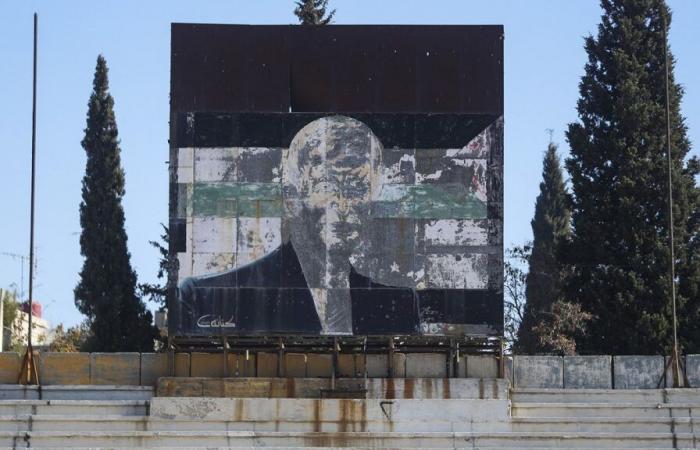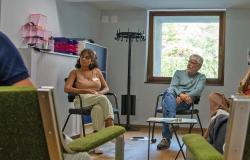After the fall of Bashar al-Assad’s regime, Alawites (Shia) are increasingly worried about the future under Sunni Islamist HTC rule, amid calls for rights protections and inclusive governance continue to multiply.
ADVERTISEMENT
As thousands of people celebrate Bashar al-Assad’s departure each day in Umayyad Square in central Damascus, many Syrian Alawites, a branch of Shiite Islam, say concerns about the future of their country pushes them to remain cautious, even downright anxious.
After al-Assad fled to Russia on December 8, following a blitzkrieg military operation by rebels based in the northern province of Idlib, which took them to the Syrian capital, a civil war brutal violence that lasted for more than 13 years has come to an end.
But Ahmed*, a middle-aged receptionist, fears this could be the start of a new period of oppression for his family.
“We see videos from Latakia, where the HTC brings people together”he explains, referring to the militant group Hayat Tahrir Al-Sham, led by Ahmed al-Sharaa.
“My wife cries every day and wants to leave”, he adds in a whisper.
Al-Sharaa, alias Abu Mohammed al-Jolani (his nom de guerre), is a Sunni Muslim who has maintained links with Al-Qaeda and its Syrian satellite, the Al-Nusra Front.
In 2017, the United States announced that there was a price on his head for $10 million (€9.6 million).
But recently, the United States, the United Kingdom, France, Turkey and other countries have lined up to establish official diplomatic contacts with the HTC.
Since the fall of Al-Assad, Jolani, who wants to distance himself from his past and give a new image to his organization, classified as “terrorist” by several countries, has changed his clothing style and shortened his beard, a gesture widely considered a sign of his more moderate beliefs, but it didn’t exactly help Ahmed and his family shed their worries.
Ahmed explains that his concern about former jihadists does not mean he prefers al-Assad, under whose rule he and his compatriots suffered in poverty while tens of thousands disappeared, than hundreds of Thousands were killed and millions became refugees across the world.
“But they don’t look like us at all”he worries, showing photos of the transition cabinet set up by the HTC.
Idlib, where HTC is based and has ruled since 2017, has a very conservative lifestyle, where most women cover their heads, hands and sometimes faces from a young age, and where most men wear a long beard.
To an outside observer, this may bring to mind places ruled by other religious extremists. In August, the HTC imposed gender segregation in Idlib schools.
The policy provided for “get away from trends [de la mode] which are different from the teachings of our religion and our traditions” and to wear “Sharia-compliant clothing”.
According to the Syrian Observatory for Human Rights (OSDH), there are courts to apply Sharia law throughout the province.
The transitional government charged with running the entire country and led by caretaker Prime Minister Mohammed al-Bashir includes transitional ministers of interior, economy, health and justice, among others, who are expected to hold their positions until March, according to the HTC.
The entire interim cabinet is made up of Sunni men. Yet Syria, home to countless civilizations, is much more diverse than that.
While the majority of the country’s 24 million people are Sunnis, between 10 and 13 percent are Alawites, a branch of Islam and Syria’s largest minority group, which is also home to Kurds, Christians, Druze and others.
Bashar al-Assad and his father, former President Hafez al-Assad, are themselves Alawites from Latakia and are known for installing members of their ethnic group in high-level positions in the army and the government since the 1970s, at the start of their dynasty.
Yet Syria’s ordinary Alawites, who live mainly in the coastal provinces of Latakia and Tartous, but also in large numbers in Damascus and Homs, have not been favored by al-Assad in terms of freedoms, as explains a young Syrian.
“It was worse for me under al-Assad”explains Hussein*, a 21-year-old engineering student, in front of a small market located on a small road in Mezzah 86, a district of Damascus where many Alawites live.
“I wasn’t happy with al-Assad, but if I said it, I was considered a traitor. So it’s doubly bad for me.”
Today, looking to the future, he says he would like to believe the promises made by the HTC since December 8, including to protect his rights as a minority and not to move from one oppression to another .
“No one has the right to erase another group. These groups have coexisted in this region for hundreds of years, and no one has the right to eliminate them”Ahmed al-Sharaa said in a television interview after the rebel victory.
On Wednesday, he also promised that Syria would not become “Afghanistan” regarding the education of girls.
These pledges are important but need to be monitored very closely, said Adam Coogle, deputy Middle East and North Africa director at Human Rights Watch.
“Syrian transitional authorities should protect the rights of all Syrians equally and make clear that acts of revenge outside the rule of law will not be tolerated,” he insists.
Meanwhile, reports of Alawite soldiers being held in HTC-held prisons continue to circulate, although Euronews cannot independently verify these claims.
Turkish President Recep Tayyip Erdoğan’s Justice and Development Party (AKP), which has good relations with the HTC, has stressed the need for a model “respectful of religious freedom”.
Turkish President Recep Tayyip Erdogan and Iranian President Massoud Pezeshkian called on Thursday for the unity of Syria, during a summit of Muslim countries in which they are participating in the Egyptian capital.
In a recent interview with local media, party spokesperson Ömer Çelik said: “The Sunnis will respect the Shiites, the Shiites will respect the Sunnis […]. A model where all ethnic and religious groups live together. We say that Syria belongs to the Syrians.”
He also insisted on this point: “If there is no inclusive governance model, the gains are unfortunately lost and greater conflicts appear. We need a model of common will.”
Last Thursday, the new Syrian government froze the constitution and parliament for a period of three months.
For the moment, it is not yet known whether the new Syria will have a civil constitution equal to all people of different origins.
Syrian Alawites who were interviewed by Euronews all said they would prefer that, and a Syria for all Syrians.
*The names of Syrians who spoke to Euronews have been changed to protect their identities.






